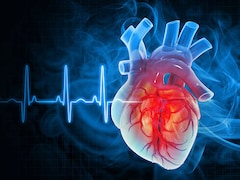Celebrity Nutritionist Rujuta Diwekar shares some little-known facts about the perimenopause and how to deal with it.

Some women experience a kind of brain fog, where they seem to forget what they called you for etc.
As women approach their 40s, their bodies begin to undergo a transformation, marked by irregular periods, spotting and heavier bleeding. Typically, around 51, the majority of women enter menopause, which is defined as having gone one year without a menstrual cycle. The period between the two phases is labelled as perimenopause. What does this journey entail? Nutritionist Rujuta Diwekar sheds light on the subject, sharing valuable insights on Instagram and addressing her followers' queries. She states that while it is a natural phenomenon of the body, it brings physical and emotional changes that can be hard to handle.
So, how do you know if you are entering perimenopause? “If you are above 35 and are experiencing changes to your periods, only bleeding for 3 days instead of 5 or unexpectedly bleeding way over a week, it could be perimenopause,” Rujuta Diwekar explains. “While perimenopause is a natural phenomenon, it does bring about a few changes in the body.”
In a video posted to Instagram, Rujuta Diwekar details the symptoms of perimenopause and lists the body parts that get affected the most in this phase.
-
Bones: The knee, back or neck tends to hurt especially just around periods or ovulation or even in response to a long day at work. But nothing really shows up in the reports.
-
Brain: Some women experience a kind of brain fog, where they seem to forget what they called you for, entered the room for, etc.
-
Heart - changes to lipid profile: Cholesterol and triglycerides and chances of high BP can go up in this phase.
-
Hormones: The changing ratios of hormones can mean everything from adult acne to a bloated stomach.
As perimenopause sets in, you may notice changes in:
-
Urination: Bladder may not empty as effortlessly as before.
-
Hair and skin: Loss of hair lustre and volume, and changes in skin pigmentation.
-
Thermo-regulation: Hot flashes and other temperature-related issues.
In the video, the nutritionist also gives tips about maintaining one's health during this tough phase:
-
Stop chasing the scales and chase consistency with exercise instead – 3/ week. Ideally, a day each for yoga, strength and cardio so we are looking at 3 hours per week of exercise time.
-
Time to give up on the task-based approach and learn a new hobby or skill. The brain needs a new thing to do, a break from the routine and the adventure of learning.
-
Eat to nurture and not punish yourself for being fat/ overweight. Rujuta Diwekar recommends:
-
Daily dose of nuts, especially if experiencing breast tenderness.
-
Soaked black raisins and kesar 10 days prior to periods (as per the Ease PMS study).
-
Root vegetables and raw bananas to help with heavy and lengthy periods.
-
A glass of chaas with lunch to boost mood and calm the gut.
-
Dahi set with raisins to combat low energy and lethargy.
Keep these things in mind for better health and management of perimenopause.
Disclaimer: This content including advice provides generic information only. It is in no way a substitute for a qualified medical opinion. Always consult a specialist or your doctor for more information. NDTV does not claim responsibility for this information.
DoctorNDTV is the one stop site for all your health needs providing the most credible health information, health news and tips with expert advice on healthy living, diet plans, informative videos etc. You can get the most relevant and accurate info you need about health problems like diabetes, cancer, pregnancy, HIV and AIDS, weight loss and many other lifestyle diseases. We have a panel of over 350 experts who help us develop content by giving their valuable inputs and bringing to us the latest in the world of healthcare.














